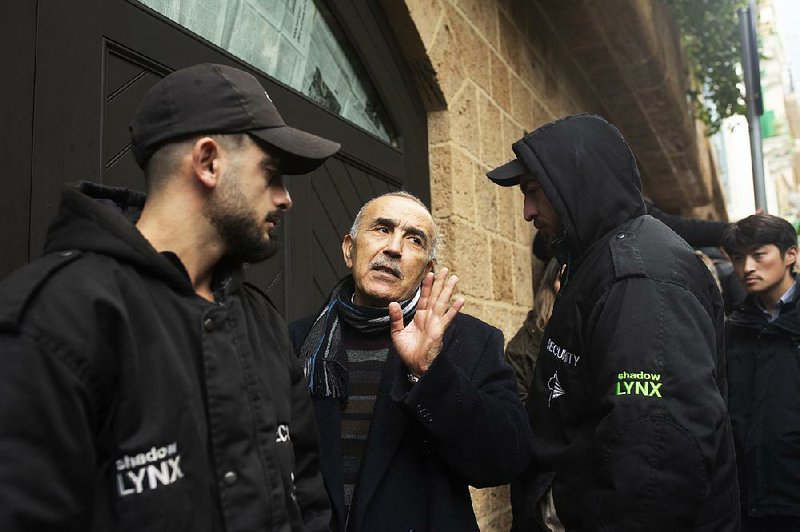Turkish authorities on Thursday questioned seven people, including four pilots, about the role they may have played helping Carlos Ghosn make his escape from Tokyo to Beirut, offering new clues to his mysterious flight.
Elsewhere, prosecutors raided the Tokyo home of the former Nissan and Renault chief executive, a Lebanese government minister said the public prosecutor had received a "red notice" -- an alert that's similar to a wanted poster -- from Interpol, and a French official said authorities there would not extradite Ghosn if he were to travel to the country.
Four days after Ghosn announced his arrival in Beirut, law enforcement officials and authorities were left grappling with the legal implications of the former automotive executive's escape. The details remain shrouded in mystery.
Ghosn left Japan on Sunday to avoid trial on financial-misconduct charges there, though his movements were supposed to be strictly limited while he was free on bail. He turned up in Lebanon, saying he had escaped the "rigged Japanese justice system."
[Video not showing up above? Click here to watch » https://www.youtube.com/watch?v=xOgbtH1qFgE]
The Lebanese justice minister, Albert Serhan, said Thursday that the public prosecutor had received a red notice from Interpol related to Ghosn's case, according to the state-run National News Agency. Such a notice is issued for individuals wanted for prosecution or to serve a sentence.
An Interpol red notice is often portrayed as an international arrest warrant, but it is essentially a diplomatic request seeking help apprehending a fugitive. Interpol itself has no arrest powers and foreign governments are not obligated to comply. Interpol does not comment on specific cases, the agency said.
A red notice "doesn't carry any weight other than being a notice," said Carl Tobias, a professor of law at the University of Richmond in Virginia. "It's not a charge, it's not saying Lebanon needs to arrest Mr. Ghosn."
Ghosn, who has not appeared in public since he announced that he was in Lebanon, issued a statement Thursday that seemed aimed to protect his family from any legal jeopardy.
"There has been speculation in the media that my wife Carole, and other members of my family played a role in my departure from Japan," the statement said. "All such speculation is inaccurate and false. I alone arranged for my departure. My family had no role whatsoever."
Hours earlier, French junior economy minister Agnes Pannier-Runacher told news channel BFM that authorities there would not extradite Ghosn if he arrived there, "because France never extradites its nationals."
A flight to France would be risky: Ghosn would have to pass through the airspace of several countries that could arrest him.
In Turkey, authorities detained seven people suspected of helping Ghosn escape, according to news outlets there. He reportedly left Japan late Sunday aboard a business jet from Osaka to Istanbul Ataturk Airport, where he quickly switched to another plane and flew to Beirut.
Much about his flight remains unknown, including how he was able to escape surveillance in Japan, how he arranged his flights to Lebanon, and whether he was helped by any other countries. The French Foreign Ministry declined to comment on reports that Ghosn had used a French passport to enter Lebanon.
Ghosn, who has been charged in Japan with an array of financial crimes while chairman of Nissan, was born in Brazil to a Lebanese family, grew up mostly in Lebanon and has lived most of his adult life in France. He has passports from all three countries, though his lawyers in Japan have said that they held the documents.
Turkish news organizations, including the state-run Anadolu news agency, reported that the planes that delivered Ghosn to Istanbul and Beirut were operated by MNG Jet, a Turkish company that offers chartered flights on business aircraft. Flight tracking websites confirm MNG flights matching Ghosn's reported path.
Four of the seven people detained in Turkey were pilots employed by a private aviation company, two were employees of a company that provides ground services to aircraft, and one was a manager of a private cargo company, according to the Turkish reports.
In Japan, prosecutors on Thursday raided Ghosn's sprawling, two-story house in an exclusive neighborhood of central Tokyo. After about four hours, around a dozen men -- most of them wearing black suits and surgical masks -- carried out heavy black briefcases and bags, ignoring questions from journalists who followed them.
In Lebanon, Ghosn may face legal trouble for reportedly visiting Israel, an enemy state, in 2008. Under Lebanese law, it is illegal for citizens to visit Israel, and even foreigners who have been there are supposed to be banned.
Ghosn remains widely respected in France despite the accusations that he underreported his compensation, shifted personal financial losses to Nissan, and used funds from Renault to organize parties at the Palace of Versailles. French officials would not comment on how Ghosn was able to flee Japan or whether he had a second French passport.
On extradition, Pannier-Runacher said, the same rules apply to Ghosn as to any French person. Nobody is above the law, she added, but "French citizenship protects, and is protective of its citizens."
Business on 01/03/2020
